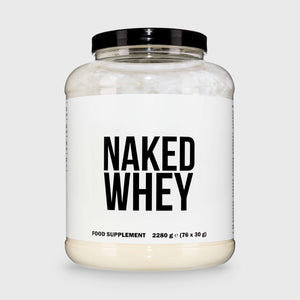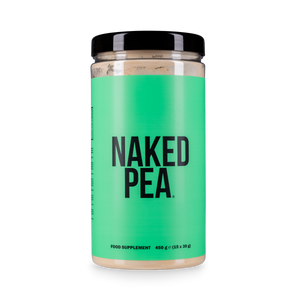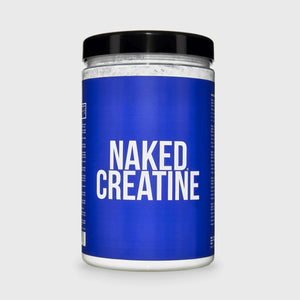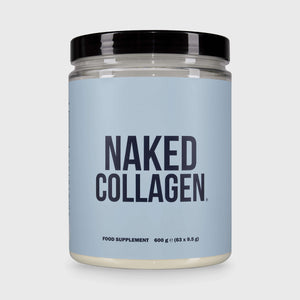Collagen is one of the most popular sports supplements for building muscle and increasing strength.
Of course, like any other supplement, if you’re going to take collagen powder, collagen gummies, or some other form of collagen, you want to maximize absorption.
Therefore, it’s important to know which nutrients impact collagen absorption—either by inhibiting or enhancing absorption.
Below, we answer the question: “Is it good to take vitamin C with collagen?”
The Role of Collagen in the Body

What collagen is and why it’s important
Collagen is the most abundant protein in the human body.
Collagen protein forms aspects of bones, teeth, skin, ligaments, tendons, muscles, blood vessels, and corneas. It also plays an instrumental role in holding cells and tissues together.
The Role of Vitamin C in Collagen Production

How vitamin C supports collagen synthesis
Vitamin C, also called ascorbic acid, is most well-known for its role in supporting the immune system.
For example, vitamin C is a powerful antioxidant, which means that it protects the body against oxidative stress caused by free radicals. Oxidative stress can cause premature cell aging and can increase inflammation.
Vitamin C is particularly beneficial for skin health because excessive oxidative stress can cause premature wrinkling of the skin by damaging collagen.
Healthy collagen gives your skin structural support, so you want to minimize damage. UV rays are one of the primary sources of free radicals that can damage skin cells.
Additionally, vitamin C plays an essential role in supporting the health of cells, such as those that make up your skin, blood vessels, bones, and cartilage.
The importance of vitamin C for skin health and immune function

As you may notice, vitamin C protects many of the same tissues that are composed of collagen. The supportive relationship between these nutrients doesn’t stop there.
In fact, vitamin C plays a pivotal role in helping the body produce collagen.
Vitamin C functions as an essential cofactor in prolyl hydroxylase and lysyl hydroxylase.
These are two molecules in the body that help produce collagen internally. Both molecules help stabilize collagen and offer structural support for the different forms of collagen that make up cartilage, bones, hair, nails, etc.
In simpler terms, you can imagine vitamin C acting as a finger pushing the control switch that allows the collagen synthesis reaction to occur in the body.
Benefits of Taking Collagen and Vitamin C Together

Because collagen and vitamin C work together in the body, it is beneficial to take collagen with vitamin C. Here are the benefits of taking collagen with vitamin C:
Enhanced collagen absorption and effectiveness
Vitamin C helps catalyze the production of collagen in the body. Vitamin C can also help digest and absorb collagen supplements or collagen in the diet so that the amino acids can be used effectively.
Synergistic effects on skin health, wound healing, and anti-aging
As mentioned, vitamin C and collagen independently support healthy skin.
Both help increase cell turnover, accelerate wound healing, and protect against premature aging.
Vitamin C also helps stabilize collagen mRNA. This helps enhance collagen production in damaged skin cells.
How to Take Collagen and Vitamin C Together

Here is some guidance regarding the best practices for taking collagen and vitamin C together:
Best practices for combining these supplements
Generally, collagen and vitamin C can be taken at any time of the day with similar results.
In other words, there is no “best time of day” to take collagen.
Most dietitians recommend taking 2.5-15 mg of collagen per day. Splitting the dose can be helpful in reducing the side effects of collagen.
Aim for up to 1000 mg of vitamin C per day.
Examples of foods and supplements that contain both collagen and vitamin C
Few foods contain both collagen and vitamin C in appreciable amounts. Therefore, you need to be mindful about pairing foods that contain vitamin C with foods that contain collagen.
If you prefer taking collagen supplements, you can either choose a supplement that has vitamin C as an added ingredient, or you should take collagen powder with foods high in vitamin C.
Here are some good food sources of vitamin C:
- Bell peppers
- Kiwi
- Kale
- Spinach
- Broccoli
- Brussels sprouts
- Red berries, such as strawberries and raspberries
- Citrus fruits, such as oranges and grapefruit
- Cantaloupe
Aside from high-quality collagen supplements, here are some foods high in collagen:
- Bone broth
- Gelatin
- Fish bones and skin
- Connective tissues of animals, so tough meat like brisket and pot roast
You can support collagen production in the body by eating enough protein, as well as foods with zinc, copper, and vitamin C.
Potential Side Effects and Considerations

Possible side effects of taking collagen and vitamin C
The potential side effects of taking vitamin C with collagen are minimal.
Vitamin C is a water-soluble vitamin, so excessive vitamin C intake will be extracted in your urine. That said, some people do experience diarrhea with high doses of vitamin C (generally above 1000mg).
Collagen can cause stomach distress, such as bloating, gas, indigestion, and diarrhea.
Typically, sports nutritionists recommend a loading phase with collagen supplements where you take a high dose for five days or so and then drop down to 5 to 10 mg per day.
However, if you are sensitive to collagen and experiencing stomach problems with collagen supplements, you can start with a much lower dose and then gradually build up as your body adjusts.
Who should consult a healthcare professional before combining these supplements?
If you are pregnant, breastfeeding, have gout, or need to be on a low-protein diet, it is important to discuss any supplementation with your healthcare provider.
Conclusion
Overall, taking vitamin C with collagen can enhance absorption and effectiveness.
Vitamin C helps support healthy skin and reduces oxidative stress. It also plays a pivotal role in facilitating the production of collagen in the body.










